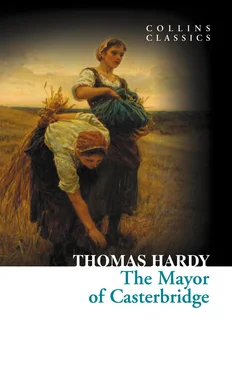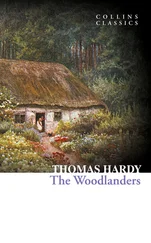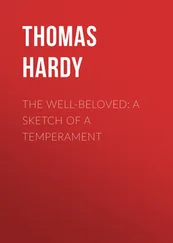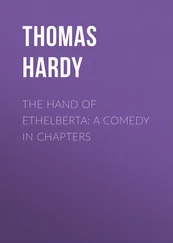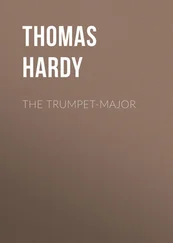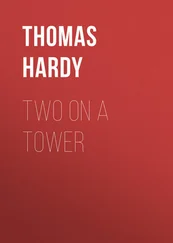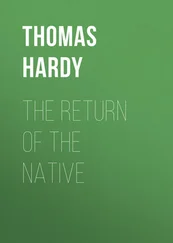In respect of places described under fictitious or ancient names in the novels – for reasons that seemed good at the time of writing them – and kept up in the poems – discerning people have affirmed in print that they clearly recognize the originals: such as Shaftesbury in ‘Shaston’, Sturminster Newton in ‘Stourcastle’, Dorchester in ‘Casterbridge’, Salisbury Plain in ‘The Great Plain’, Cranbourne Chase in ‘The Chase’, Beaminster in ‘Emminster’, Bere Regis in ‘Kingsbere’, Woodbury Hill in ‘Greenhil’, Wool Bridge in ‘Wellbridge’, Harfoot or Harput Lane in ‘Stagfoot Lane’, Hazelbury in ‘Nuttlebury’, Bridport in ‘Port Bredy’, Maiden Newton in ‘Chalk Newton’, a farm near Nettlecombe Tout in ‘Flintcomb Ash’, Sherborne in ‘Sherton Abbas’, Milton Abbey in ‘Middleton Abbey’, Cerne Abbas in ‘Abbot’s Cernel’, Evershot in ‘Evershed’, Taunton in ‘Toneborough’, Bournemouth in ‘Sandbourne’, Winchester in ‘Wintoncester’, Oxford in ‘Christminster’, Reading in ‘Aldbrickham’, Newbury in ‘Kennet-bridge’, Wantage in ‘Alfredston’, Basingstoke in ‘Stoke Bare-hills’, and so on. Subject to the qualifications above given, that no detail is guaranteed – that the portraiture of fictitiously named towns and villages was only suggested by certain real places, and wontonly wanders from inventorial descriptions of them – I do not contradict these keen hunters for the real; I am satisfied with their statements as at least an indication of their interest in the scenes.
Thus much for the novels. Turning now to the verse – to myself the more individual part of my literary fruitage – I would say that, unlike some of the fiction, nothing interfered with the writer’s freedom in respect of its form or content. Several of the poems – indeed many – were produced before novel-writing had been thought of as a pursuit; but few saw the light till all the novels had been published. The limited stage to which the majority of the latter confine their exhibitions has not been adhered to here in the same proportion, the dramatic part especially having a very broad theatre of action. It may thus relieve the circumscribed areas treated in the prose, if such relief be needed. To be sure, one might argue that by surveying Europe from a celestial point of vision – as in The Dynasts – that continent becomes virtually a province – a Wessex, an Attica, even a mere garden – and hence is made to conform to the principle of the novels, however far it outmeasures their region. But that may be as it will.
The few volumes filled by the verse cover a producing of some eighteen years first and last, while the seventeen or more volumes of novels represent correspondingly about four-and-twenty years. One is reminded by this disproportion in time and result how much more concise and quintessential expression becomes when given in rhythmic form than when shaped in the language of prose.
One word on what has been called the present writer’s philosophy of life, as exhibited more particularly in the metrical section of his compositions. Positive views on the Whence and the Wherefore of things have never been advanced by this pen as a consistent philosophy. Nor is it likely, indeed, that imaginative writings extending over more than forty years would exhibit a coherent scientific theory of the universe even if it had been attempted – of that universe concerning which Spencer owns to the ‘paralyzing thought’ that possibly there exists no comprehension of it anywhere. But such objectless consistency never has been attempted, and the sentiments in the following pages have been stated truly to be mere impressions of the moment, and not convictions or arguments.
That these impressions have been condemned as ‘pessimistic’ – as if that were a very wicked adjective – shows a curious muddle-mindedness. It must be obvious that there is a higher characteristic of philosophy than pessimism, or than meliorism, or even than the optimism of these critics – which is truth. Existence is either ordered in a certain way, or it is not so ordered, and conjectures which harmonize best with experience are removed above all comparison with other conjectures which do not so harmonize. So that to say one view is worse than other views, without proving it erroneous implies the possibility of a false view being better or more expedient than a true view; and no pragmatic proppings can make that idolum specus stand on its feet, for it postulates a prescience denied to humanity.
And there is another consideration. Differing natures find their tongue in the presence of differing spectacles. Some natures become vocal at tragedy, some are made vocal by comedy, and it seems to me that to whichever of these aspects of life a writer’s instinct for expression the more readily responds, to that he should allow it to respond. That before a contrasting side of things he remains undemonstrative need not be assumed to mean that he remains unperceiving.
It was my hope to add to these volumes of verse as many more as would make a fairly comprehensive cycle of the whole. I had wished that those in dramatic, ballad, and narrative form should include most of the cardinal situations which occur in social and public life, and those in lyric form a round of emotional experiences of some completeness. But
The petty done, the undone vast!
The more written the more seems to remain to be written; and the night cometh. I realize that these hopes and plans, except possibly to the extent of a volume or two, must remain unfulfilled.
October 1911 T.H.
One evening of late summer, before the nineteenth century had reached one-third of its span, a young man and woman, the latter carrying a child, were approaching the large village of Weydon-Priors, in Upper Wessex, on foot. They were plainly but not ill clad, though the thick hoar of dust which had accumulated on their shoes and garments from an obviously long journey lent a disadvantageous shabbiness to their appearance just now.
The man was of fine figure, swarthy, and stern in aspect; and he showed in profile a facial angle so slightly inclined as to be almost perpendicular. He wore a short jacket of brown corduroy, newer than the remainder of his suit, which was a fustian waistcoat with white horn buttons, breeches of the same, tanned leggings, and a straw hat overlaid with black glazed canvas. At his back he carried by a looped strap a rush basket, from which protruded at one end the crutch of a hay-knife, a wimble for hay-bonds being also visible in the aperture. His measured, springless walk was the walk of the skilled countryman as distinct from the desultory shamble of the general labourer; while in the turn and plant of each foot there was, further, a dogged and cynical indifference personal to himself, showing its presence even in the regularly interchanging fustian folds, now in the left leg, now in the right, as he paced along.
What was really peculiar, however, in this couple’s progress, and would have attracted the attention of any casual observer otherwise disposed to overlook them, was the perfect silence they preserved. They walked side by side in such a way as to suggest afar off the low, easy, confidential chat of people full of reciprocity; but on closer view it could be discerned that the man was reading, or pretending to read, a ballad sheet which he kept before his eyes with some difficulty by the hand that was passed through the basket strap. Whether this apparent cause were the real cause, or whether it were an assumed one to escape an intercourse that would have been irksome to him, nobody but himself could have said precisely; but his taciturnity was unbroken, and the woman enjoyed no society whatever from his presence. Virtually she walked the highway alone, save for the child she bore. Sometimes the man’s bent elbow almost touched her shoulder, for she kept as close to his side as was possible without actual contact; but she seemed to have no idea of taking his arm, nor he of offering it; and far from exhibiting surprise at his ignoring silence she appeared to receive it as a natural thing. If any word at all were uttered by the little group, it was an occasional whisper of the woman to the child—a tiny girl in short clothes and blue boots of knitted yarn—and the murmured babble of the child in reply.
Читать дальше
